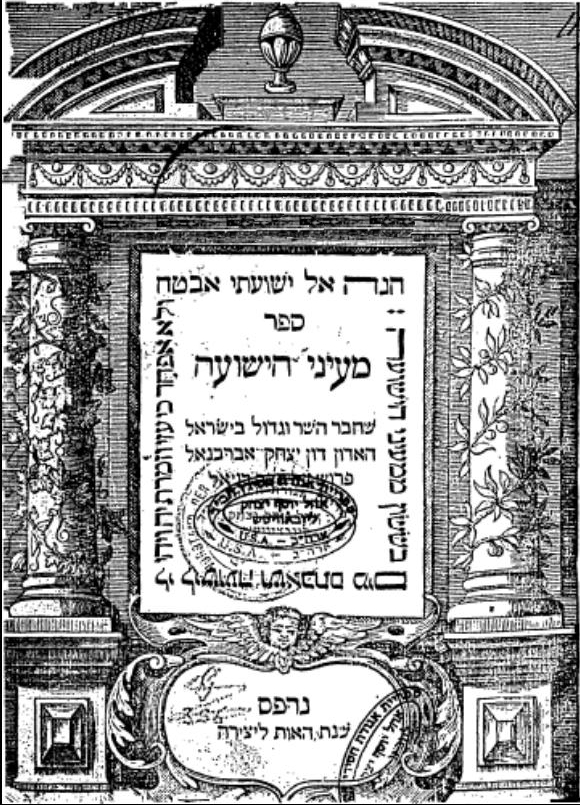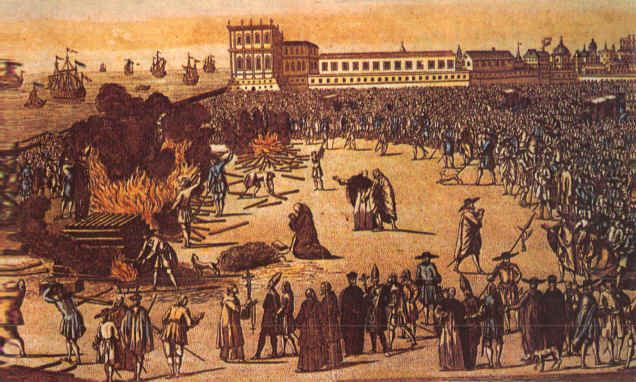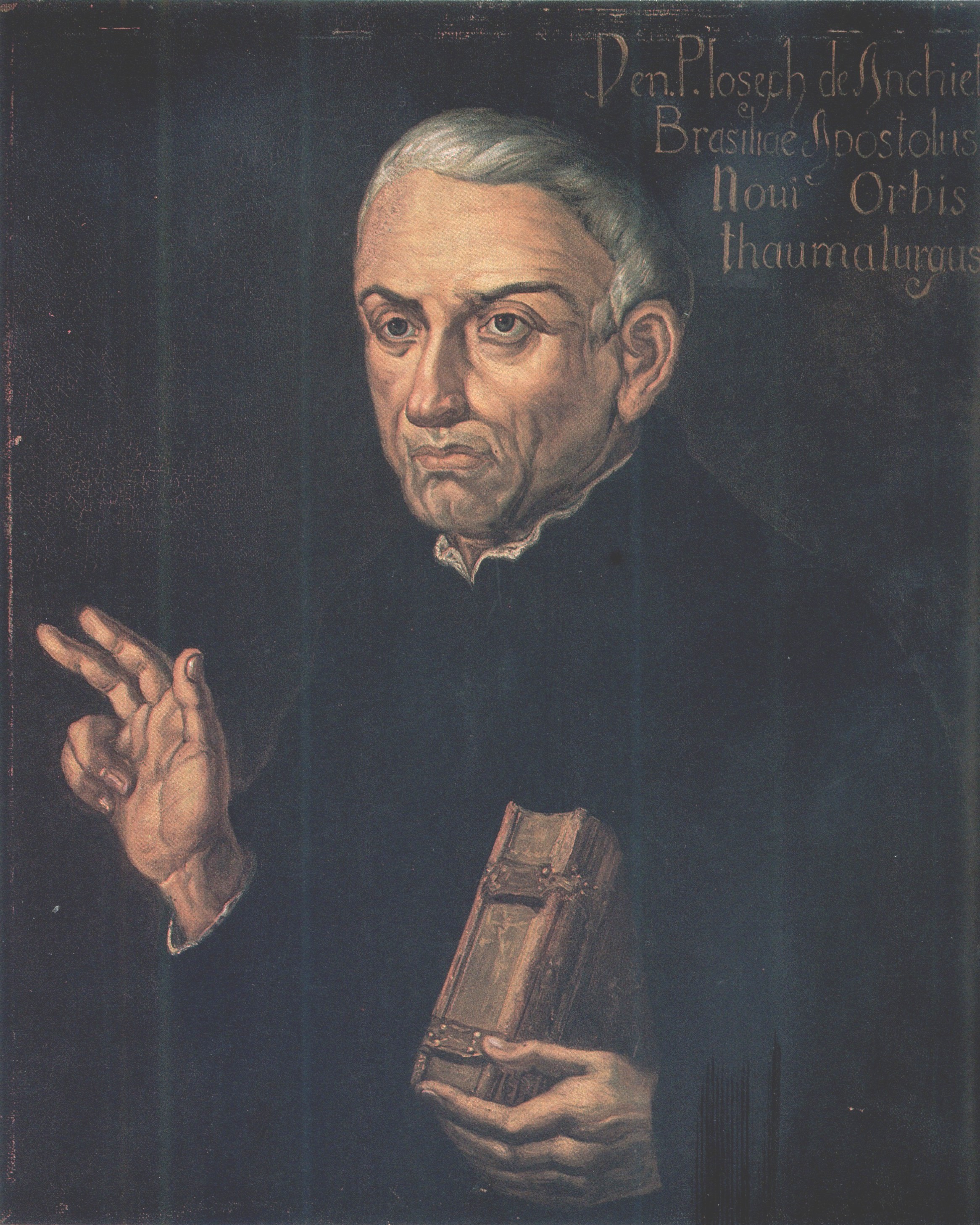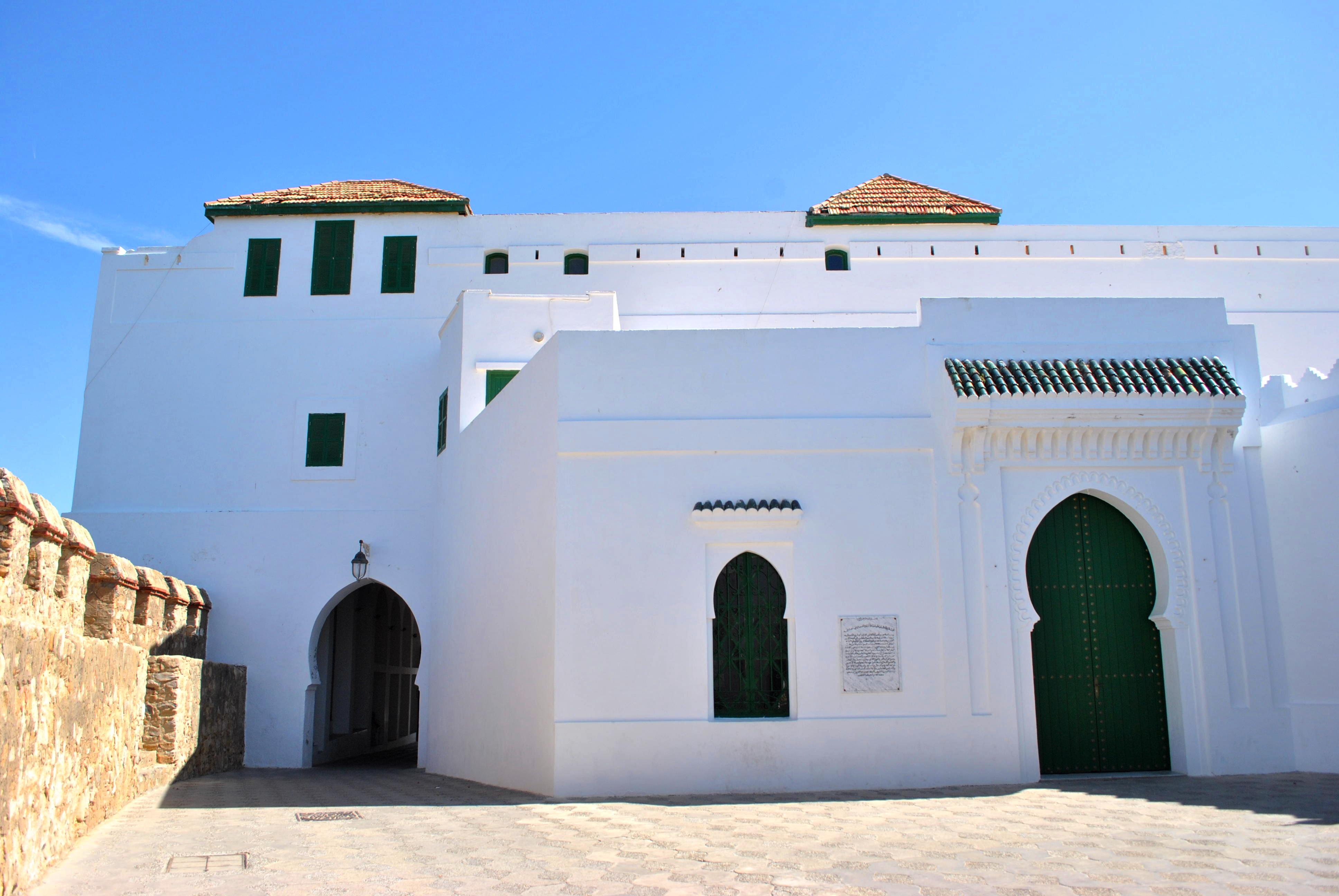|
Isaac Abravanel
Isaac ben Judah Abarbanel (; 1437–1508), commonly referred to as Abarbanel (; also spelled Abravanel, Avravanel or Abrabanel), was a Portuguese Jewish statesman, philosopher, Bible commentator, and financier. Name Some debate exists over whether his last name should be pronounced ''Abarbanel'' or ''Abravanel''. The traditional pronunciation is ''Abarbanel''. Modern scholarly literature, since Graetz and Baer, has most commonly used ''Abravanel'', but his own son Judah insisted on ''Abarbanel'', and ''Sefer HaTishbi'' by Elijah Levita, who was a nearby contemporary, twice vowels the name as ''Abarbinel'' (אַבַּרְבִּינֵאל).Abarbanel and the Censor page 1, note 1 The name's etymology is uncertain. Some say it comes from ''Ab Rabban El'', ... [...More Info...] [...Related Items...] OR: [Wikipedia] [Google] [Baidu] |
Jewish Philosophy
Jewish philosophy () includes all philosophy carried out by Jews or in relation to the religion of Judaism. Until the modern ''Haskalah'' (Jewish Enlightenment) and Jewish emancipation, Jewish philosophy was preoccupied with attempts to reconcile coherent new ideas into the tradition of Rabbinic Judaism, thus organizing emergent ideas that are not necessarily Jewish into a uniquely Jewish scholastic framework and worldview. With their admission into broader modern society, Jews with secular educations embraced or developed entirely new philosophies to meet the world's demands in which they now found themselves. Medieval rediscovery of ancient Greek philosophy among the ''Geonim'' of 10th-century Babylonian academies brought Rationalism, rationalist philosophy into Tanakh, Biblical-Talmudic Judaism. During the ''Geonic'' period, philosophy was generally in competition with Kabbalah. Both schools would become part of classic Rabbinic literature, though the decline of scholastic r ... [...More Info...] [...Related Items...] OR: [Wikipedia] [Google] [Baidu] |
Spanish And Portuguese Jews
Spanish and Portuguese Jews, also called Western Sephardim, Iberian Jews, or Peninsular Jews, are a distinctive sub-group of Sephardic Jews who are largely descended from Jews who lived as New Christians in the Iberian Peninsula during the few centuries following the forced expulsion of unconverted Jews Expulsion of the Jews from Spain, from Spain in 1492 and Expulsion of Jews and Muslims from Portugal, from Portugal in 1497. They should therefore be distinguished both from the descendants of those expelled in 1492 and from the present-day Jews, Jewish communities of Spain and Portugal. The main present-day communities of Spanish and Portuguese Jews exist in the Netherlands, the United Kingdom, the United States and Canada, and several other Jewish communities in the Americas have Spanish and Portuguese Jewish roots though they no longer follow the distinctive customs of the Spanish and Portuguese Jews. Historical background Although the 1492 and 1497 expulsions of unconvert ... [...More Info...] [...Related Items...] OR: [Wikipedia] [Google] [Baidu] |
Converso
A ''converso'' (; ; feminine form ''conversa''), "convert" (), was a Jew who converted to Catholicism in Spain or Portugal, particularly during the 14th and 15th centuries, or one of their descendants. To safeguard the Old Christian population and make sure that the ''converso'' " New Christians" were true to their new faith, the Holy Office of the Inquisition was established in Spain in 1478. The Catholic Monarchs of Spain Ferdinand and Isabella expelled the remaining openly practising Jews by the Alhambra Decree of 1492, following the Christian ''Reconquista'' (reconquest) of Spain. However, a significant proportion of these remaining practising Jews chose to join the already large ''converso'' community rather than face exile. ''Conversos'' who did not fully or genuinely embrace Catholicism, but continued to practise Judaism in secrecy, were referred to as ''judaizantes'' " Judaizers" and pejoratively as '' marranos''. New Christian converts of Muslim origin were ... [...More Info...] [...Related Items...] OR: [Wikipedia] [Google] [Baidu] |
Toledo, Spain
Toledo ( ; ) is a city and Municipalities of Spain, municipality of Spain, the capital of the province of Toledo and the ''de jure'' seat of the government and parliament of the autonomous communities of Spain, autonomous community of Castilla–La Mancha. Toledo is primarily located on the right (north) bank of the Tagus in central Iberian Peninsula, Iberia, nestled in a bend of the river. Built on a previous Carpetanian settlement, Toledo developed into an important Roman city of Hispania, later becoming the capital (''civitas regia'') of the Visigothic Kingdom and seat of a Roman Catholic Archdiocese of Toledo, powerful archdiocese. Often unsubmissive to Emirate of Córdoba, Umayyad central rule during the Islamic period, Toledo (طليطلة) nonetheless acquired a status as a major cultural centre (promoting productive cultural exchanges between the Ummah and the Latin Christendom), which still retained after the Fitna of al-Andalus, collapse of the caliphate and the crea ... [...More Info...] [...Related Items...] OR: [Wikipedia] [Google] [Baidu] |
Fernando II, Duke Of Braganza
Dom Fernando II of Braganza (; 1430 – 20 June 1483) was the 3rd Duke of Braganza and the 1st Duke of Guimarães, among other titles. He is known for being executed for treason against the King. Early life Fernando II, born in 1430, was a successful young man and quickly grew popular amongst the Portuguese nobility. He was most appreciated by King Afonso V of Portugal, and always escorted the King on his different incursions into Morocco, where he participated in several conquests and expeditions. Being favored by King Afonso V, Fernando was created Count of Guimarães in 1464. He was soon upgraded to Duke of Guimarães in 1475. Fernando II took part in the War of the Castilian Succession. Following King Henry IV of Castile's death, the King's daughter and heir, Joanna La Beltraneja, married to King Afonso V, was proclaimed "Queen of Castile", but she had the opposition of her half-aunt (the future queen Isabella I of Castile) to contend with. The Portuguese invaded Casti ... [...More Info...] [...Related Items...] OR: [Wikipedia] [Google] [Baidu] |
John II Of Portugal
John II (; ; 3 May 1455 – 25 October 1495), called the Perfect Prince (), was King of Portugal from 1481 until his death in 1495, and also for a brief time in 1477. He is known for reestablishing the power of the Portuguese monarchy, reinvigorating the economy of Portugal, and renewing the Portuguese exploration of Africa and Asia. Early life Born in Lisbon on 3 May 1455, John was the second son of Afonso V of Portugal and Isabella of Coimbra. At one month old, on 25 June 1455, he was declared legitimate heir to the crown and received an oath of allegiance from the three estates. In 1468, Afonso V and Henry IV of Castile attempted to arrange a double marriage in which John would marry Henry's daughter, Joanna, and Afonso would marry Henry's half-sister and heir-presumptive, Isabella of Castile. However, Isabella refused to consent to the arrangement. Instead, John married Eleanor of Viseu, his first cousin and the eldest daughter of Ferdinand, Duke of Viseu, on 22 Janu ... [...More Info...] [...Related Items...] OR: [Wikipedia] [Google] [Baidu] |
Morocco
Morocco, officially the Kingdom of Morocco, is a country in the Maghreb region of North Africa. It has coastlines on the Mediterranean Sea to the north and the Atlantic Ocean to the west, and has land borders with Algeria to Algeria–Morocco border, the east, and the disputed territory of Western Sahara to Morocco–Western Sahara border, the south. Morocco also claims the Spain, Spanish Enclave and exclave, exclaves of Ceuta, Melilla and Peñón de Vélez de la Gomera, and several small Plazas de soberanía, Spanish-controlled islands off its coast. It has a population of approximately 37 million. Islam is both the official and predominant religion, while Arabic and Berber are the official languages. Additionally, French and the Moroccan dialect of Arabic are widely spoken. The culture of Morocco is a mix of Arab culture, Arab, Berbers, Berber, Culture of Africa, African and Culture of Europe, European cultures. Its capital is Rabat, while its largest city is Casablanca. Th ... [...More Info...] [...Related Items...] OR: [Wikipedia] [Google] [Baidu] |
Arzila
Asilah () is a fortified town on the northwest tip of the Atlantic coast of Morocco, about south of Tangier. Its ramparts and gateworks remain fully intact. History The town's history dates back to 1500 B.C., when Phoenicians occupied a site called Silis, Zili, Zilis, or Zilil (, , or , ) which is being excavated at Dchar Jdid, some NE of present Asilah; that place was once considered to be the Roman stronghold Ad Mercuri, but is now accepted to be Zilil. The town of Asilah itself was originally constructed by the shia Idrisid dynasty, and Umayyad caliph Al-Hakam II rebuilt the town in 966. The Portuguese conquered the city in 1471 and built its fortifications, but it was abandoned because of an economic debt crisis in 1549. In 1578, Sebastian of Portugal used Asilah as a base for his troops during a planned crusade that resulted in Sebastian's death, which in turn caused the Portuguese succession crisis of 1580. The Portuguese kept hold of the town but in 1589 the Saadi ... [...More Info...] [...Related Items...] OR: [Wikipedia] [Google] [Baidu] |
Afonso V Of Portugal
Afonso V (; 15 January 1432 – 28 August 1481), known by the sobriquet the African (), was King of Portugal from 1438 until his death in 1481, with a brief interruption in 1477. His sobriquet refers to his military conquests in Northern Africa. He later became embroiled in the War of the Castilian Succession but lost and instead accepted Portuguese hegemony in the Atlantic south of the Canary Islands in exchange. Early life Born in Sintra on 15 January 1432, Afonso was the second son of King Edward of Portugal by his wife Eleanor of Aragon. Following the death of his older brother, Infante João (1429–1433), Afonso acceded to the position of heir apparent and was made the first Prince of Portugal by his father, who sought to emulate the English court's custom of a dynastic title that distinguished the heir apparent from the other children of the monarch. He was only six years old when he succeeded his father in 1438. During his minority, Afonso was placed under the regen ... [...More Info...] [...Related Items...] OR: [Wikipedia] [Google] [Baidu] |
Joseph Ibn Shem-Tov
:''To be distinguished from Joseph Albo (1380-1435)'' Joseph ben Shem-Tov ibn Shem-Tov (died 1480) was a prolific Judæo-Spanish writer born in Castile. He lived in various cities of Spain: Medina del Campo de León (1441); Alcalá de Henares (1451); and Segovia (1454). He held a position at court which brought him in contact with Christian scholars. According to the custom of the time. In the preface to his commentary on Profiat Duran's ''Al-Tehi ka-Aboteka'', he recounts a disputation with a Christian scholar concerning the doctrine of the Trinity. In 1452 he was sent by the Prince of Asturia, Don Enrique, to Segovia to prevent an outbreak of popular rage against the Jews at Easter. He speaks occasionally in his writings of great sufferings which drove him from place to place, and of passing through a severe illness. Graetz (''Gesch.'' viii. 422) said, based a quotation in Joseph Jaabez's ''Or ha-ayyim'', that Ibn Shem-ob died a martyr. He died in 1480. Ibn Shem-ob's nume ... [...More Info...] [...Related Items...] OR: [Wikipedia] [Google] [Baidu] |
Rabbinic Literature
Rabbinic literature, in its broadest sense, is the entire corpus of works authored by rabbis throughout Jewish history. The term typically refers to literature from the Talmudic era (70–640 CE), as opposed to medieval and modern rabbinic writings. It aligns with the Hebrew term ''Sifrut Chazal'' (), which translates to “literature f oursages” and generally pertains only to the sages (''Chazal'') from the Talmudic period. This more specific sense of "Rabbinic literature"—referring to the Talmud, Midrashim (), and related writings, but hardly ever to later texts—is how the term is generally intended when used in contemporary academic writing. The terms ''mefareshim'' and ''parshanim'' (commentaries and commentators) almost always refer to later, post-Talmudic writers of rabbinic glosses on Biblical and Talmudic texts. Mishnaic literature The Midr'she halakha, Mishnah, and Tosefta (compiled from materials pre-dating the year 200 CE) are the earliest extan ... [...More Info...] [...Related Items...] OR: [Wikipedia] [Google] [Baidu] |
Hezekiah Gaon
Hezekiah Gaon or Hezekiah ben David () was the last Gaon of the Talmudic academy in Pumbedita from 1038 to 1040. Hezekiah ben David was a member of the House of Exilarchs; his father David was the son of Zakkai. Some scholars believe Hezekiah was great-grandson of David ben Zakai (not the grandson of David). Hezekiah was elected to the office of principal after the death of Hai Gaon at the age of 99, but was denounced to a fanatical government of the Buyid dynasty, who then imprisoned and tortured him to death. However, the '' Jewish Quarterly Review'' mentioned that Hezekiah was liberated from prison, and became head of the academy, and is mentioned as such by a contemporary in 1046. With him ended his family except two sons who escaped to the Iberian Peninsula, where they found a home with Joseph ibn Naghrela, son of Samuel ibn Naghrillah. The death of Hezekiah ended the line of the Geonim, which had begun four centuries earlier (see Hanan of Iskiya), and with it, Pumbedit ... [...More Info...] [...Related Items...] OR: [Wikipedia] [Google] [Baidu] |





